A Guide to Trailer Light Connectors Adapters
Vehicles and trailers can have different electric plugs and connectors. Here's what you need to know to make the connection.
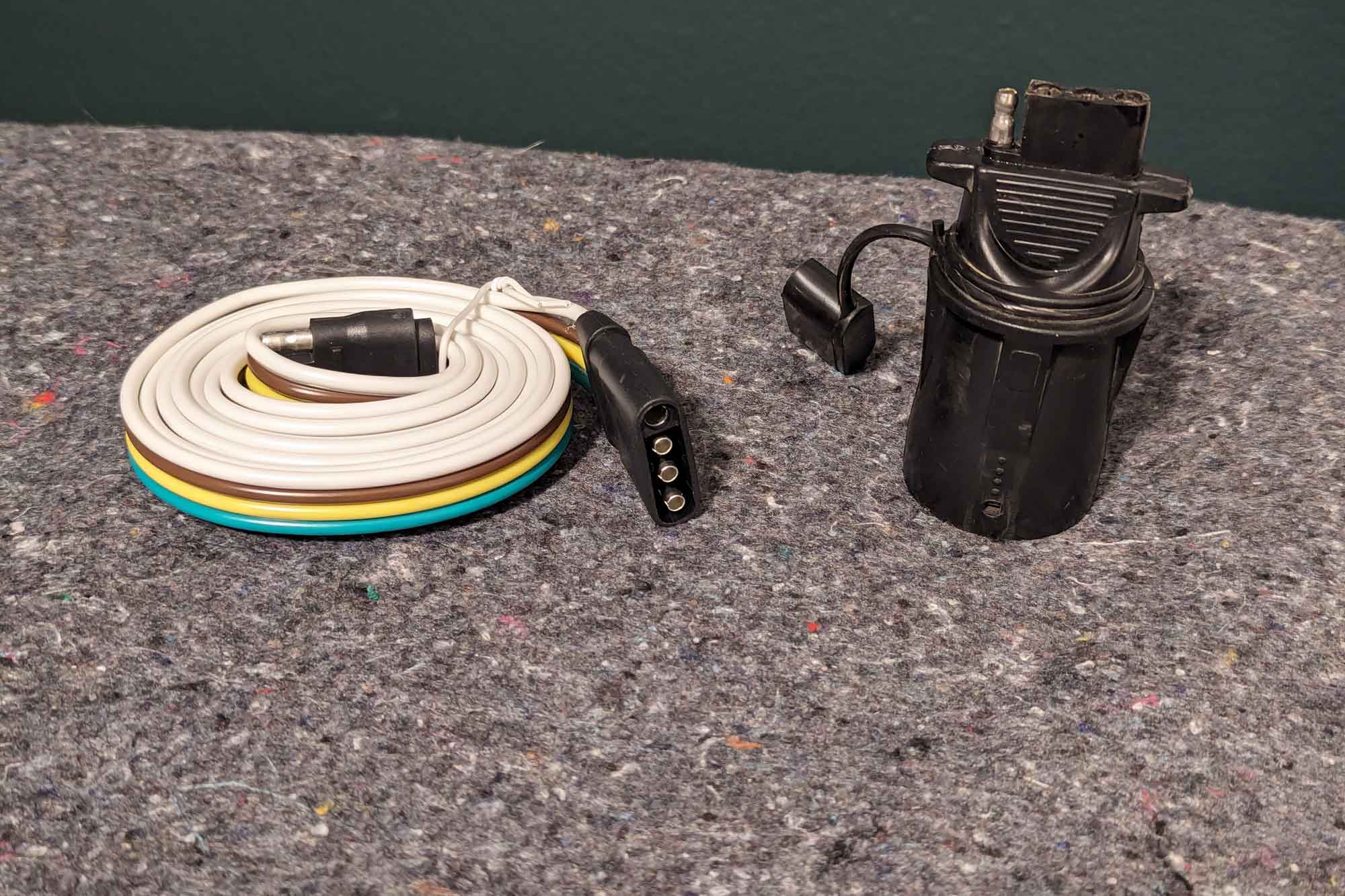 Austin Lott | Capital One
Austin Lott | Capital One
When towing a trailer, your light, taillight, and turn-signal functions need to be transferred from your vehicle to the trailer. This is done by linking the two units through an electrical connection, such as plugging a lamp into a wall socket. There are various types of connectors and sockets on both vehicles and trailers alike that you'll need to pair together.
Before towing anything, it's essential to review local towing regulations, the towing limits of your vehicle, and how much your loaded trailer weighs. Your vehicle owner's manual should contain this information.
This simple process is detailed to guide you through how to connect your trailer.
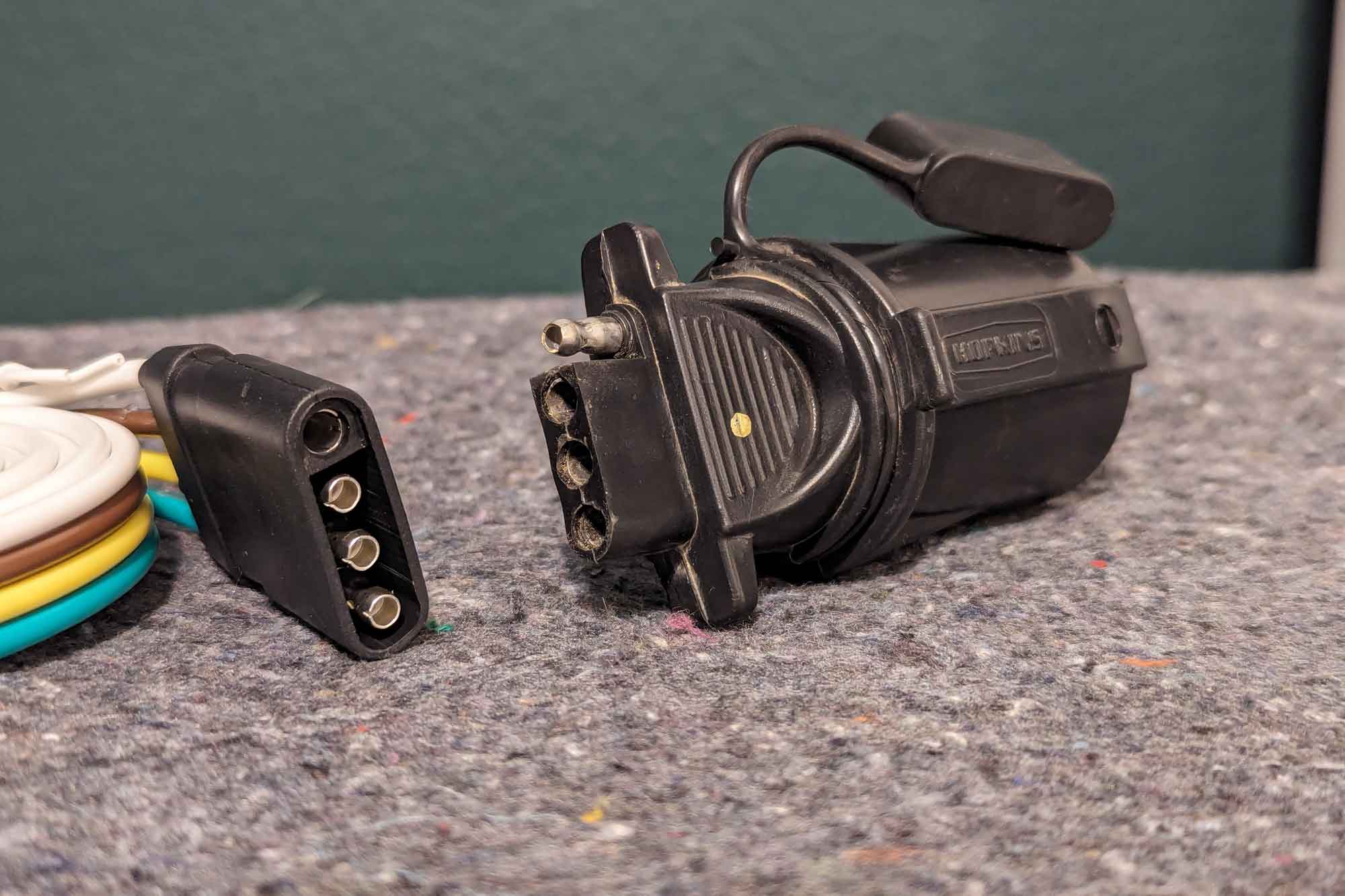 Austin Lott
Austin Lott
Types of Trailer Light Connector
Trailer electrical plugs or connectors are found in flat, round, and square shapes, with a differing number of wires in the connector. The advantage of more wires means the trailer has more functions that can be controlled by the vehicle — basic trailer wiring supports running lights, brake lights, and turn signals, while more advanced plugs allow tow vehicles to control electric trailer brakes or charge a battery on the trailer. At the connector, the ends are often interchangeably referred to as pins, poles, and blades.
Four-Way Flat
This is the most common type of light-duty trailer connection. It connects four wires to operate the trailer brake lights, taillights, turn signal lights, and a ground for the circuit. The trailer side will have three pins and one socket all in a flat row.
Five-Way Flat or Round
Five-way simply adds another wire to allow for an additional function such as trailer reverse lights or trailer brake activation, depending on both vehicle and trailer equipment. The five-way flat connector is similar to the four-way, but sprouts four pins and one socket in a flat row. The five-way round only uses socket connectors.
Six-Way Round or Square
A six-way connector builds on the five-way by adding a designated 12-volt power wire that can allow for charging a battery on your trailer or small camper. It's commonly found in the round shape but can also be square.
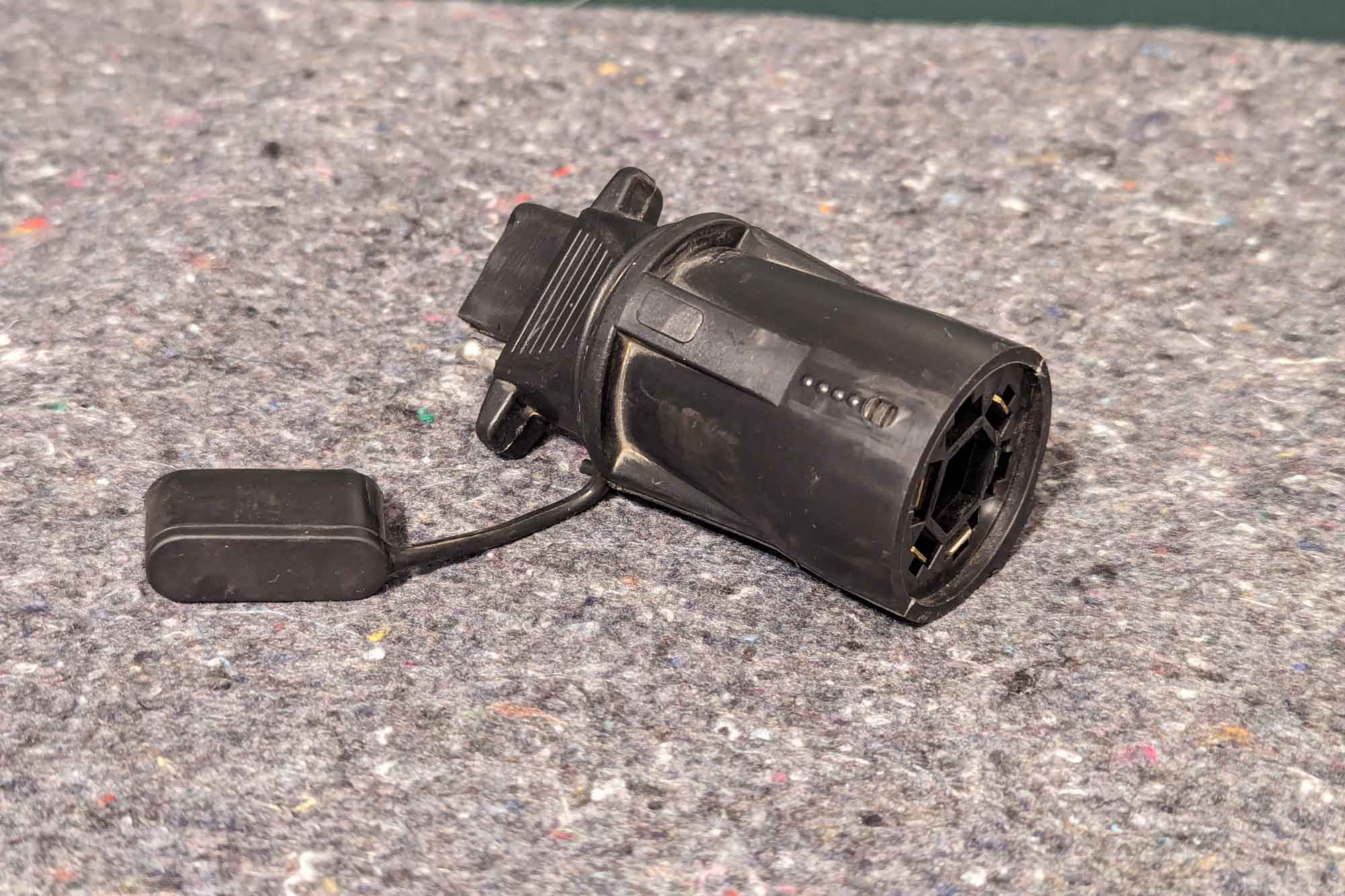 Austin Lott
Austin Lott
Seven-Way
With seven wires, this connector is most commonly found with flat or blade pins around the perimeter, but in some cases it can feature seven round pins. The common blade-style seven-way is also known as an RV-style connector. It is typically the most advanced you'll likely find on non-commercial trailers. Modern trailers with two or more axles, including large campers, enclosed trailers, and heavy-duty trailers, are commonly equipped with a seven-way connector.
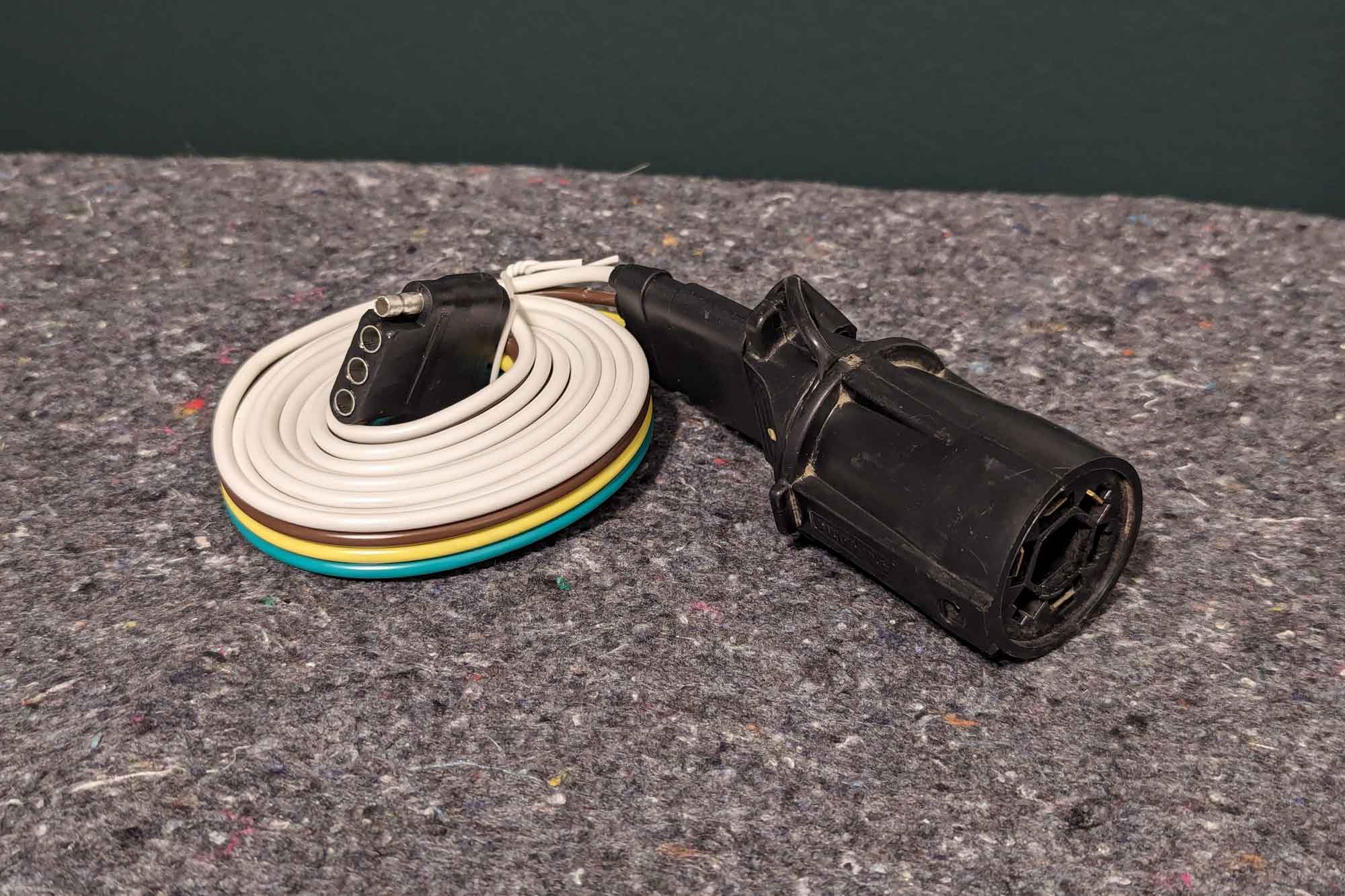 Austin Lott
Austin Lott
What to Do if My Trailer Light Connectors Are Different Types
There are many different adapters available, but you need to consider vehicle capability and trailer/load size. For example, if the trailer you intend to tow has a five-way or higher connector, it's most likely equipped with electric trailer brakes because of its size. If your vehicle only has a four-way socket, it does not have the ability to activate electric trailer brakes and you should not tow the trailer — unless it's equipped with a self-activating brake system.
But if your vehicle has a socket for a seven-way connector, you can easily attach an adapter for all of the lower-pin connectors. The most common adapter converts a seven-way on the vehicle side to a four-way connector on the trailer.
A lot of modern pickup trucks and large SUVs equipped with a factory-installed tow package often have sockets for both four-way and seven-way trailer connectors. Before buying an adapter, look inside the small hinged doors near your license plate for the sockets.
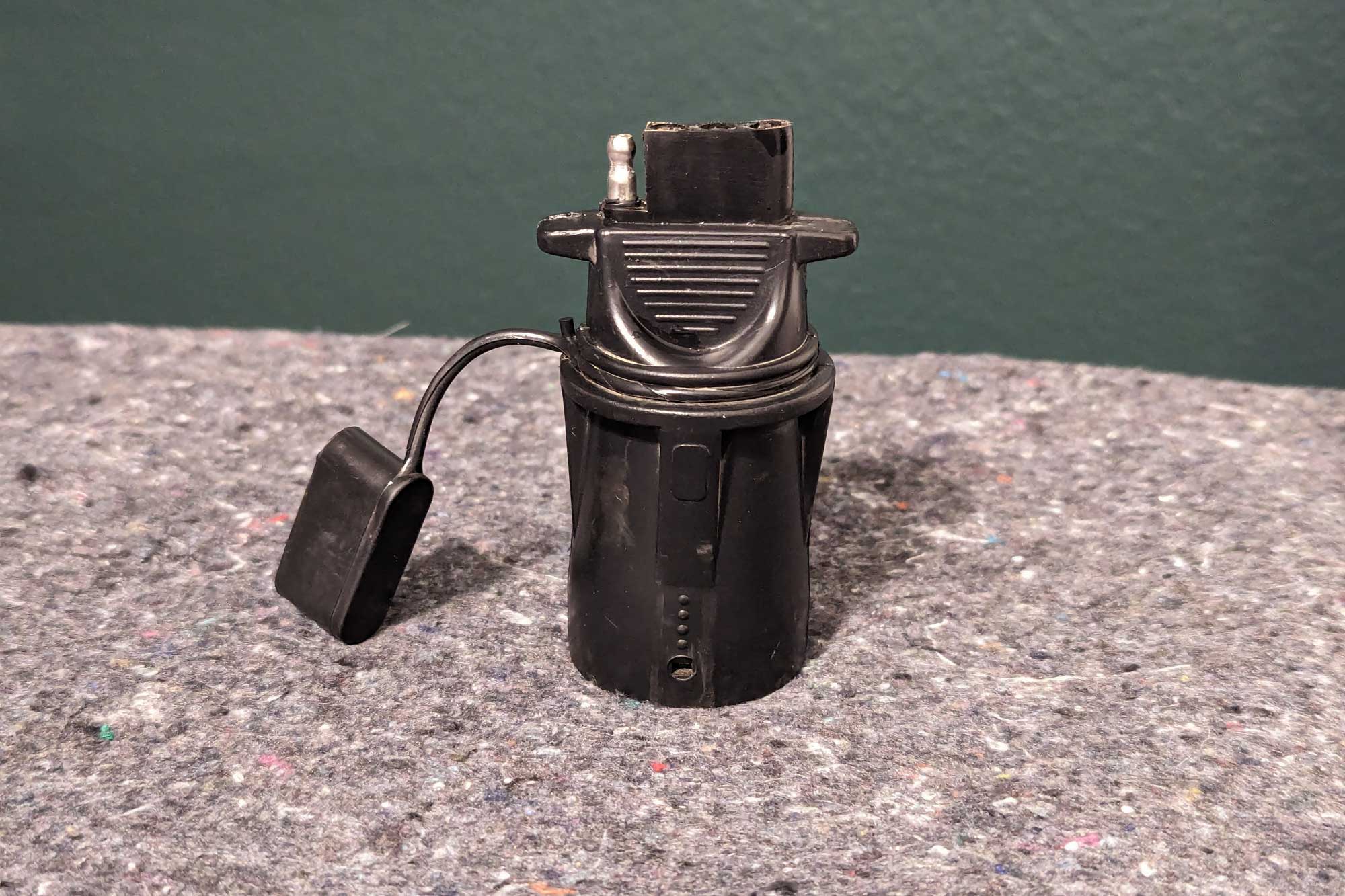 Austin Lott
Austin Lott
Where to Buy an Adapter
You can find adapters at auto parts stores, hardware and home improvement stores, many retailers with an automotive section, and at trailer retailers or rental stores.
You can also purchase trailer wiring adapters from online stores such as
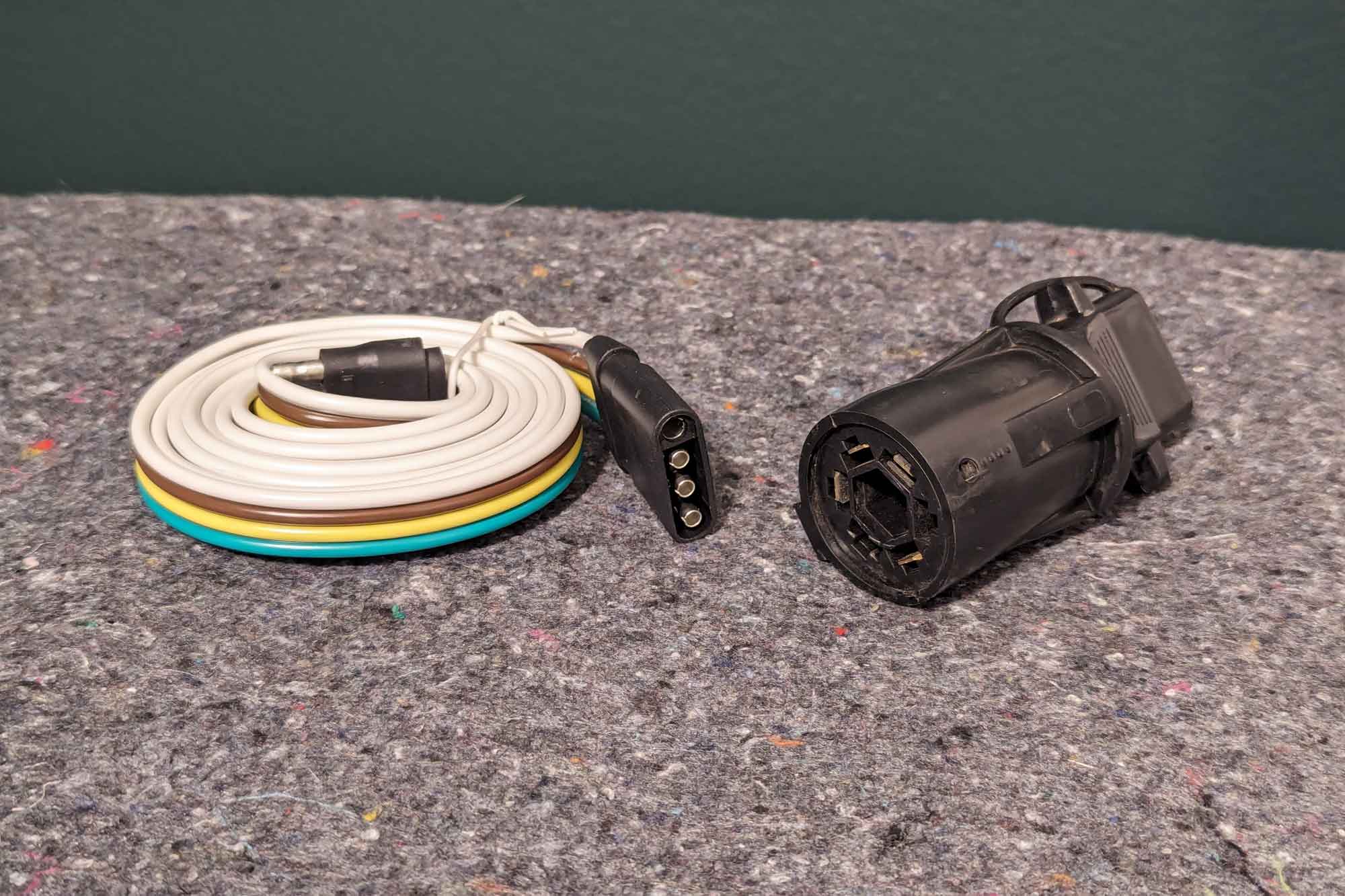 Austin Lott
Austin Lott
What If I Don't Have a Socket or Connecter on My Vehicle?
You may have purchased a vehicle with an aftermarket hitch, but there's no trailer wiring installed or it's not easily visible. If you aren't able to find any trailer connections, you can most often have one installed at a local trailer retailer, truck accessory shop, or trailer rental company such as U-Haul.
If you want to do the work yourself and need a four-way connector, look for vehicle-specific kits that are simple and straightforward. With anything larger than a four-way or for any questions, it may be best to consult a professional.
Written by humans.
Edited by humans.
 Jon Yanca
Jon YancaTo say cars have been a lifelong passion for Jon Yanca would be an understatement. Obsession is probably more fitting. He brings over 15 years of automotive-industry experience spanning from top enthusiast publications, to advertising and marketing, to independent auto repair. When Jon is not writing about cars, you'll find him racing on dirt, pavement, and even ice, or with a wrench in hand maintaining his fleet of vehicles.
Related articles
View more related articles